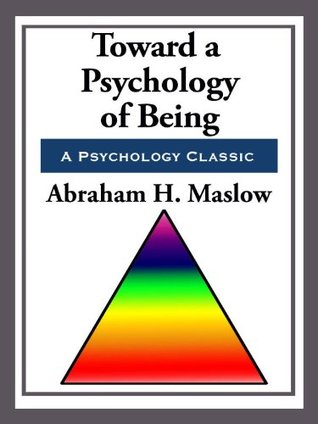More on this book
Community
Kindle Notes & Highlights
This inner nature is not strong and overpowering and unmistakable like the instincts of animals. It is weak and delicate and subtle and easily overcome by habit, cultural pressure, and wrong attitudes toward it. 8. Even though weak, it rarely disappears in the normal person—perhaps not even in the sick person. Even though denied, it persists underground forever pressing for actualization.
Somehow, these conclusions must all be articulated with the necessity of discipline, deprivation, frustration, pain, and tragedy. To the extent that these experiences reveal and foster and fulfill our inner nature, to that extent they are
The thing to do seems to be to find out what you are really like inside, deep down, as a member of the human species and as a particular individual.
That is to say, your superego or your conscience was supposed by Freud to be primarily the internalization of the wishes, demands, and ideals of the father and mother, whoever they happen to be.
It insists that we be true to our inner nature and that we do not deny it out of weakness or for advantage or for any other reason.
but there may equally well come renewed courage, righteous indignation, increased self-respect, because of thereafter doing the right thing; in a word, growth and improvement can come through pain and conflict.
tolerance. Why is he delinquent? Most often it is for sick reasons. But occasionally it is for good reasons and the boy is simply resisting exploitation, domination, neglect, contempt, and trampling upon.
(between what the human being is, what he would like to be, and what he could be).
I suspect we will focus our studies on these integrative techniques more than we have in the past.
Another consequence for my thinking of this stress on the twofold nature of man is the realization that some problems must remain eternally insoluble.
Practically every serious description of the ‘authentic person”extant implies that such a person, by virtue of what he has become, assumes a new relation to his society and indeed, to society in general. He not only transcends himself in various ways; he also transcends his culture. He resists enculturation. He becomes more detached from his culture and from his society. He becomes a little more a member of his species and a little less a member of his local group. My feeling is that most sociologists and anthropologists will take this hard.
leaving out as it did his aspirations, his realizable hopes, his godlike qualities.
The Europeans are stressing the self-making of the self,
discovering the self (as if it were there waiting to be found) and of uncovering therapy (shovel away the top layers and you’ll see what has been always lying there, hidden). To say, however, that the self is a project and is altogether created by the continual choices of the person himself,
overstatement in view of what we know of, e.g., the constitutional and genetic determinants of personality.
A problem we psychologists have been ducking is the problem of responsibility, and, necessarily tied in with it, the concepts of courage and of will in the personality.
The existentialist stress on the ultimate aloneness of the individual is a useful reminder for us, not only to work out further the concepts of decision, of responsibility, of choice, of self-creation, of autonomy, of identity itself. It also makes more problematic and more fascinating the mystery of communication between alonenesses via, e.g., intuition and empathy, love and altruism, identification with others, and homonomy in general. We take these for granted. It would be better if we regarded them as miracles to be explained.
Another preoccupation of existentialist writers can be phrased very simply, I think. It is the dimension of seriousness and profundity of living (or perhaps the “tragic sense of life”) contrasted with the shallow and superficial life, which is a kind of diminished living, a defense against the ultimate problems of life.
I (and others) have been increasingly impressed with the fact that tragedy can sometimes be therapeutic, and that therapy often seems to work best when people
are driven into it by pain.
the shallow life doesn’t work that it is questioned and that there occurs a call to fundamentals. Shallowness in psychology doesn’t work either as the exis...
This highlight has been truncated due to consecutive passage length restrictions.
They are part of the current call back to raw experience as prior to any concepts or abstractions.
This amounts to what I believe to be a justified critique of the whole way of thinking of the western world in the 20th century,
There are other radical changes made necessary by the inclusion of the psyche and of raw experience in reality, and such a change will affect not only the science of psychology but all other sciences as well, e.g., parsimony, simplicity, precision, orderliness, logic, elegance, definition, etc. are all of the realm of abstraction.
the problem of future time in psychology.
self-actualization is meaningless without reference to a currently active future; life can be a gestalt in time, etc., etc.
Also we must realize that only the future is in principle unknown and unknowable, which means that all habits, defenses and coping mechanisms are doubtful and ambiguous since they are based on past experience.
Only the flexibly creative person can really manage future, only the one who can face
novelty with confidence and w...
This highlight has been truncated due to consecutive passage length restrictions.
I am convinced that much of what we now call psychology is the study of the tricks we use to avoid the anxiety of absolute novelty by making b...
This highlight has been truncated due to consecutive passage length restrictions.
psychology of the fully evolved and authentic Self and its ways of being. Sutich has suggested calling this ontopsychology.


